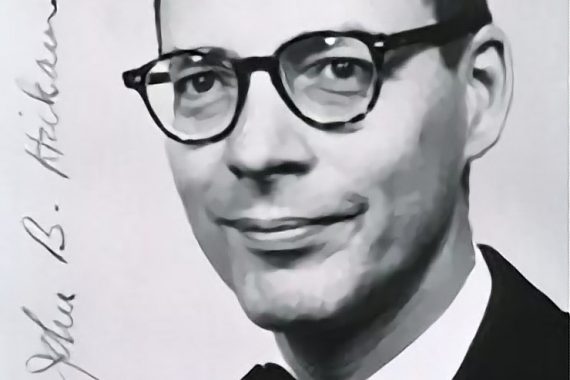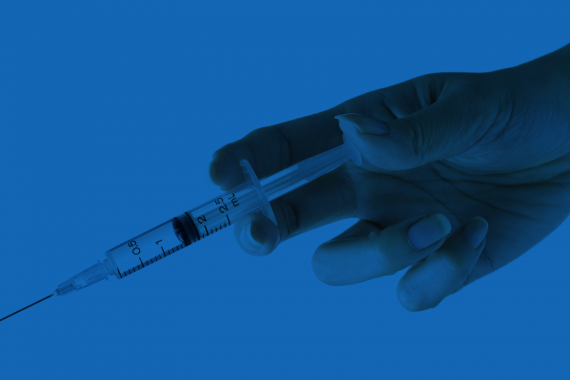Conversations to inspire critical thinking in clinical medicine and education
Welcome to IM Reasoning with your hosts Dr. Art Nahill and Dr. Nic Szecket, two general internists with a passion for teaching clinical reasoning.
Join us for case discussions, conversations and interviews that explore issues important to medical students, trainees and practitioners of clinical medicine, with a special focus on clinical reasoning, the once-mysterious process behind the remarkable abilities of the master clinician.





Recent-time listener, first time poster… Writer is 30-year-old male with past professional history of physical chemistry and recent onset of third year medical student presenting with a suggestion and a question. The onset of the writer’s question was one week prior to comment and nothing has answered the writer’s question. The question is burning due to its role in a quality control project the writer is undertaking and its implications radiate to myriad subjects. Writer describes the question as constantly on his mind, more prominent in the evening. The writer has many associated inquiries of a like bent and attributes… Read more »
Hi Zachary. Thanks for writing such a creative comment and sorry for the delay in responding. You make some excellent points. Firstly, I always tell my medical students that they are an integral part of the team, not only because they may have more up to date knowledge than others on the team, not only because they often have the time and compassion that the patients need, but most importantly because it is their job to ask questions, and sometimes those questions can be exactly what a team needs to refocus its thinking. The chief complaint is by definition what… Read more »
Hey, sorry for this random comment but love your Channel! Hope you have time soon to check out the Tin Can Radio app on the iPhone sometime!
While I practice paediatrics I find these podcasts really illuminating and extremely helpful in my approach to teaching juniors. I wish this approach had been taught 40 years ago when I was a medical student but its never too late to learn! Id be interested to know if you plan on doing episodes on cognitive biases, reasoning and management. Also the intersection of how doctors think with ethics? And another thing, it would be great if you could shorten the gap between episodes.
Thanks for the feedback Ted. We’ll definitely give thought to management issues although we’ve tended to talk a bit more about diagnosis since that drives treatment. The realm of ethics is something we’re exploring- if you have any specific ideas we’d love to hear them. It would be great if we could manage more episodes but this really is a low-budget labor of love. We have many masters including our clinical responsibilities which are significant. We often struggle to find time to record and edit an episode a month which is about what we can realistically turn out. If you… Read more »
Hey guys, I’m a NZ trained paramedic in the UK and I love your podcast, I have learnt a huge amount to the asbolute benefit of my patients. I have a question for you guys though in regards to diagnostic process. I love going through and generating problem representations but when confronted with acutely deteriorating patients there often isn’t time or energy to spare for an intensive system 2 process and so we revert to system 1. My question, after much preamble then, is do you have a diagnostic process for these acute cases beyond using a structured ABCDE approach… Read more »
Hi Dan, glad you find the podcast helpful. There are even frameworks for differential diagnosis in urgent situations- e.g., for PEA, shock, etc. Type 1 reasoning is often reliable as we’ve often pointed out but may be supplemented with cognitive checklists (like ABCD as you suggest). And even in urgent situations, one needs to keep an open mind and not succumb to premature closure and anchoring if patients are not responding as we would expect.
Hello Art and Nic,
Absolutely love your podcast, it has helped me in many ways as a lowly foundation doctor in the U.K., trying to make diagnoses and plans whilst lacking the experience and those important illness scripts I have yet to develop!
Please may I ask, when you talk about pre- and post-test probabilities in diagnostic reasoning, what are your sources of information, do you have to trawl through the literature to find these values or do you have a reference guide of some sort?
Thanks!
Hi. Glad you find the podcast helpful. Pre-test probabilities are based on prevalence for a particular disease plus the particular historical or physical exam features of the patient in front of you that make the disease in question more or less likely. We often do this intuitively with chest pain. Prevalence of various diseases can be found on line- there is also an OK app called docLogica that can sometimes be helpful with disease prevalence, though most of its data is from the US
Love your podcast
Did you mention a Dr. John Eeley and a common presentations ( of illness) and a checklist to facilitate diagnosis?
Maybe I am misspelling his name.
I would like to look at this and can’t find it. Any assistance would be appreciated
Keep up the great work!
Here’s the link for Dr. John Ely’s symptom checklist: http://pie.med.utoronto.ca/DC/index.htm
Cheers
Hi Art and Nic I’m a Rural Hospital Medicine and General Practice Trainee and daily listener for the last few months on my 1 hour commute. I’m still listening to older episodes so tell me if you’ve already done this. Would a DIY (Do it yourself) episode be possible please? I mean by this that applying a ‘stump the chumps’ (STC) approach to every patient that comes through my door would mean that I work at a fraction of the usual snail’s pace I can muster. This is not sustainable and so I need to apply what you teach in… Read more »
Thanks for your comments Amanda- lots to unpack here. We’ll think about your idea of running through our daily ward round list. The STC format isn’t meant to be something that people would engage in every day but think of it a bit like training during the week for the big rugby match on Saturday- the hope is by deconstructing and practicing the skills necessary for good performance in the match, those skills will flow more naturally and intuitively when it really matters. And you’re absolutely right- many of our ‘diagnoses’ have no absolute gold standard to confirm or refute… Read more »
Art and Nic, I am a 3rd yrd Med student in Australia and I started listening to your podacast a month ago on the recommendation of some classmates and have really enjoyed it. Thanks so much to the both of you for your excellent work in putting this together. As a result of your podcast, I feel that I am developing a much better understanding of what to record in the medical notes and how that links to and suppports my clinical reasoning. On a seperate note, you are always asking for feedback on your podcasts, and for me, while… Read more »
Thanks Ben. Keep listening- just might hear another cognitive autopsy among the next few episodes.
Art and Nic, I really enjoy your podcast. I’ve been downloading it from my podcast app on my iPhone. I’m not too great on technology, so accidentally rated it 1 star! I immediately 5 star rated it to make up for that but I can’t get rid of the one star. Sorry! Please ignore it.
Am I able to download the podcasts for offline listening?
Know this sounds crazy but we’re not sure…
A little tricky but I do it by finding the URL for the actual mp3 (on my mac, i do this via “page info”) and then i can download it using VLC media player. For example, the last STC URL address is http://traffic.libsyn.com/imreasoning/episode_43_STC_AMSA_Perth_with_Michelle_Johnston_-_10818_1.10_PM.mp3